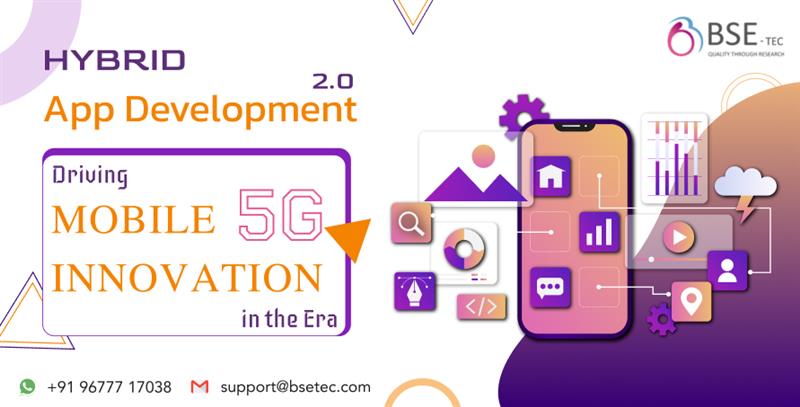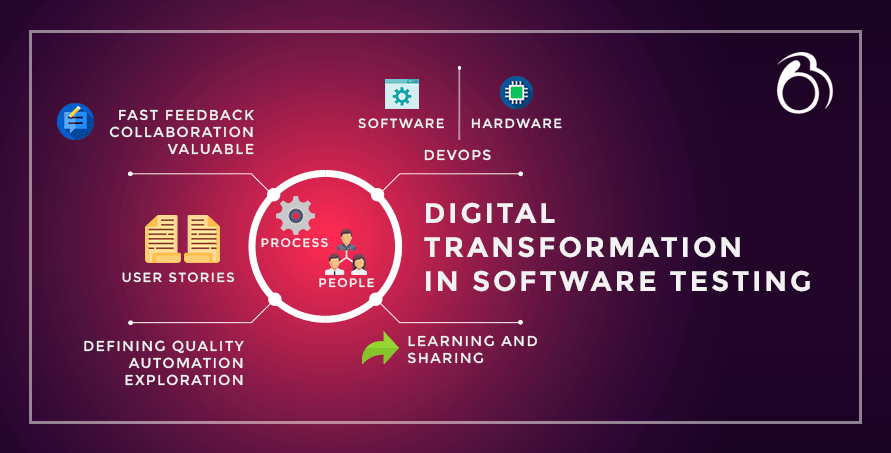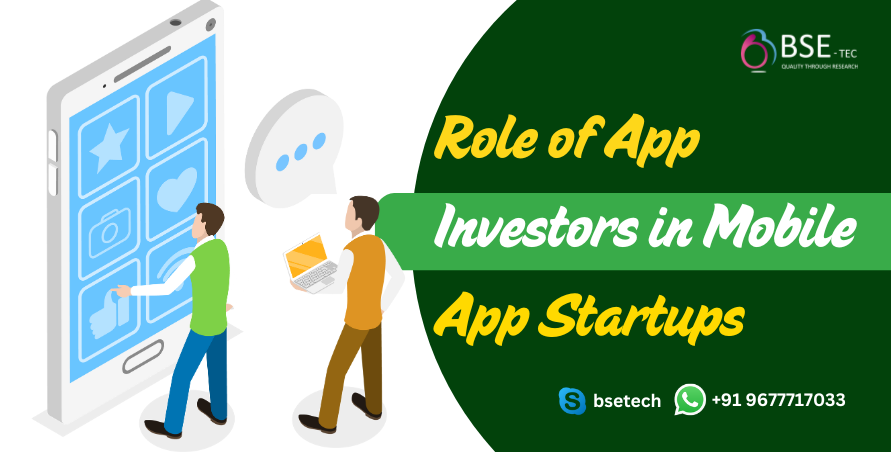
In the fast-changing mobile environment of today, hybrid apps have surfaced as the ideal compromise between speed, efficiency, and cross-platform capabilities. As 5G networks are introduced, hybrid app development is transitioning into a new phase, hybrid app development 2.0, where applications are not only functional but also quick, engaging, and rich in features.
Users currently expect immediate responsiveness, superior media experiences, and smooth real-time interactions. 5G enables this, facilitating innovations like AR/VR experiences, IoT connectivity, and sophisticated analytics in hybrid applications. This upcoming generation of applications goes beyond merely connecting platforms; it focuses on developing mobile experiences that are engaging, flexible, and future-ready.
What is hybrid app development?
Hybrid app development is changing the way mobile applications are produced by combining the best features of both native and online apps. Hybrid apps use a single codebase that functions flawlessly across several platforms, rather than developing distinct apps for iOS and Android.
Hybrid apps are developing in the 5G age to provide immersive features and real-time interaction. They are creative, flexible, and prepared for the future, with features like AR/VR experiences, IoT Integration, and AI-driven personalization.
Today’s hybrid apps go beyond mere compatibility; they emphasize innovation, scalability, and long-term adaptability. By utilizing hybrid app development, businesses can swiftly adapt to changing technological trends, accelerate product launches, and deliver innovative mobile experiences that help them stay competitive in the digital arena.
Where are hybrid apps used?
Hybrid apps are transforming the landscape of mobile development, offering a blend of cross-platform compatibility, speed, efficiency, and cost savings. Their adaptability makes them ideal for industries that demand real-time performance and a dependable user experience.
- Retail & E-Commerce: Hybrid apps are changing the game in online shopping by providing instant updates, streamlined checkout processes, and personalized offers that function seamlessly across various devices.
- Financial Services: From digital banking to investment platforms, hybrid apps ensure secure, fast, and responsive solutions for users, regardless of whether they are on iOS or Android.
- Healthcare & Wellness: Telemedicine, fitness tracking, and health monitoring applications are increasingly dependent on hybrid apps to synchronize real-time data and enhance patient engagement.
- Travel & Hospitality: Booking apps, ride-sharing services, and travel guides utilize hybrid technologies for real-time tracking, notifications, and seamless booking experiences.
- Education & Learning: E-learning platforms, interactive tutorials, and online course applications take advantage of hybrid apps for easy access across devices and effective content delivery.
- Entertainment & Media: Streaming services, gaming platforms, and social media apps benefit from hybrid technology, ensuring high-quality media experiences, real-time interaction, and uniformity across devices.
As 5G technology rolls out, hybrid apps are poised to redefine standards—supporting AR/VR, IoT, AI-driven personalization, and rapid connectivity. They are becoming the preferred choice for businesses looking to innovate and expand.
How do hybrid app development technologies work?
Hybrid app development is at the forefront of mobile innovation. Developers are now utilizing advanced frameworks like Flutter, react native, and Ionic to create a single codebase that functions seamlessly on both iOS and Android, eliminating the need for two separate apps.
This not only conserves time and reduces costs but also promotes quicker updates and a consistent user experience across various platforms.
Trend
The extends beyond just efficient cross-platform functionality—hybrid technologies are merging with 5G, AI, AR/VR, and cloud computing. As a result, apps can now provide real-time performance, enhanced personalization, and immersive experiences, irrespective of the device or platform.
Companies are adopting hybrid apps to remain agile, speed up product launches, and expand their reach globally, all while maintaining a streamlined development process.
How do hybrid app development technologies work?
- Hybrid app development presents an effective strategy for businesses looking to deliver smooth mobile experiences across various platforms while managing both time and costs efficiently. By adopting this approach, companies can avoid the hassle of creating separate applications for iOS and Android, streamlining their development process.
- This method combines familiar web technologies like HTML, CSS, and JavaScript with the powerful features of mobile devices. As a result, developers can create applications that not only meet user expectations but also leverage the strengths of both the web and mobile environments.
- Instead of spending resources on creating two distinct applications for different operating systems, developers can focus on a unified codebase. This approach simplifies the development lifecycle and helps in maintaining consistency across platforms, ensuring a better experience for end-users.
- By utilizing frameworks such as Ionic, React Native, or Flutter, developers can encapsulate web-based code in a native container, enabling the app to function seamlessly on both Android and iOS devices. This technique enhances the app’s performance and access to device features.
- With hybrid apps, businesses gain the ability to tap into critical functionalities of mobile devices, including camera access, GPS, push notifications, and offline data storage. This flexibility not only improves user engagement but also enriches the app’s overall capabilities.
- Ultimately, hybrid apps strive to deliver a user experience that rivals that of native applications, all while operating on web-based code behind the scenes. This combination allows businesses to maintain a high-quality product without compromising on efficiency or performance.
How will 5G technology impact hybrid app development?
5G is revolutionizing the landscape of hybrid app development. It’s not just about faster internet speeds; it’s about transforming how these applications perform. With remarkable speed and low latency, hybrid apps are now able to offer more dynamic, engaging, and seamless experiences.
These apps, which already allow developers to create a single codebase for various platforms, stand to gain tremendously from the capabilities of 5G.
The high-speed connectivity enables smooth operation of real-time augmented and virtual reality, live video streaming, cloud gaming, and complex data tasks, resulting in user experiences that feel almost as smooth as native applications.
- Instant Data Loading – Applications can now quickly fetch and display large datasets, videos, or interactive content, leading to a more seamless user experience.
- High-Quality Multimedia – Users can expect smooth, buffer-free streaming of HD and 4K videos, along with realistic 3D graphics and immersive AR/VR experiences.
- Smarter IoT Integration – Hybrid applications can effectively control and monitor IoT devices in real-time, enhancing everything from smart home systems to industrial sensors.
- Edge Computing Support – Complex calculations can be carried out on nearby servers, which lightens the load on devices and enhances performance overall.
- Low Latency Real-Time Interaction – Multiplayer games, collaborative apps, and instant customer service platforms are quicker and more dependable, thanks to reduced latency.
- Enhanced Cloud Gaming & AR/VR – With 5G technology, users enjoy smooth cloud gaming experiences and immersive augmented and virtual reality content.
- AI & Machine Learning in Real-Time – Applications are now capable of executing AI functions either on the device or in the cloud almost instantly, leading to smarter recommendations, predictions, and automated processes.
- Improved App Responsiveness – Even devices with lower specifications can deliver a faster, more responsive app experience due to high-speed connections and optimized cloud syncing.
- Seamless Video Conferencing & Collaboration – Hybrid applications designed for remote work, learning, or social networking now provide interactive experiences without lag, making virtual interactions feel more natural.
- Expanded Location-Based Services – Real-time navigation, live tracking, and geo-fenced features are now more precise and responsive, improving usability across various applications.
Hybrid app development trends in the 5G Era
The 5G revolution goes beyond merely providing faster internet speeds; it’s fundamentally changing the way hybrid apps are created and used. With incredible speeds and minimal delays, hybrid apps are entering an exciting phase marked by enhanced performance, greater interactivity, and smarter functionality.
- Real-Time, High-Performance Experiences
With 5G, hybrid apps can smoothly manage live streaming, high-resolution media, and instant updates. Users benefit from performance nearly equivalent to native apps, free from the typical limitations of platform constraints.
- Immersive AR/VR Features
Hybrid apps are enhancing user experiences with AR and VR, from virtual try-ons in retail settings to interactive learning opportunities in education. Thanks to 5G, these features work seamlessly without lag or interruptions.
- AI and Smart Personalization
The increased data transfer speeds of 5G allow hybrid apps to leverage AI insights in real time, offering personalized content recommendations, predicting user actions, and facilitating smarter interactions.
- Seamless Progressive Web Apps (PWA) Integration
Hybrid apps are merging with PWA technology, providing app-like experiences directly in browsers. This means users enjoy offline access and quick loading times, all made possible by 5G connectivity.
- Cloud and Edge Computing Power
5G drastically cuts down latency for cloud-based hybrid apps. This enables real-time collaboration, smooth IoT integration, and enhanced analytics, while edge computing delivers faster local processing.
- Rapid Development with Low-Code/No-Code Platforms
Developers are now using low-code platforms to construct hybrid apps more efficiently than ever. The advantages of 5G facilitate quick testing, deployment, and updates, allowing businesses to remain agile and responsive.
Why Choose BSEtec for Your 5G Hybrid App Development
BSEtec is leading the way in bringing cutting-edge technologies into mobile apps. Their development process blends Artificial Intelligence (AI), Machine Learning (ML), and Internet of Things (IoT) features, making sure that the apps are not just responsive but also smart and capable of adapting to what users need.
This is especially important in the 5G era, where being able to process data in real-time is essential.
BSEtec is dedicated to building scalable applications that evolve alongside your business. They emphasize creating solutions that can easily adapt to future tech developments, ensuring that your systems remain effective and relevant for the long haul.
We provide continuous support and maintenance services. Their dedicated team works to keep applications current with the latest technology trends, ensuring they operate smoothly and efficiently. This ongoing assistance gives businesses confidence that their systems are in good hands.


